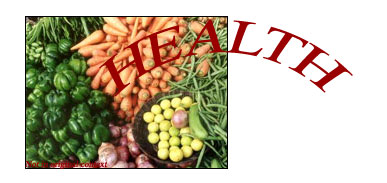

|
Like any physical body, the overall health of a community is dependent on the health of individual parts, and similarly the health of each part is dependent on the vitality of the whole. Therefore, it is important for members of any community to recognize that they have a responsibility as an integral part of the community, to promote the well being of others. I propose that one of the most effective ways to do this is to control where you spend your money so that you support other community members and they in turn support you by providing wholesome products. Also I believe that once a person begins to spend their money deliberately and consciously, they will find themselves making more connections with other people in their community. Where you spend your money.Too many people do not realize that all forms of food purchases contribute directly to the support of particular production practices. Therefore, it is essential that all shoppers know where their food comes from and understand that the money they spend will affect the environment, their community, and the economy.If it sounds like I am advocating more time and energy spent
by the consumer to acquire food, I am. It is absolutely essential that
consumers take the initiative to spend their money responsibly, and to
take the time to develop relationships with their food sources. I believe
that this process will instill respect for the people who produce food,
and therefore create an essential attitude of shared condition and shared
responsibility. How does one go about finding their local food sources? We all know where the local grocery store is, but what about things like farmers markets? Do we know where local farms are located, or local Co-ops? If you live here in Thurston County see the local foods page.--Farmers markets: Find your local farmers market. Most towns and communities have farmers markets where local food producers come on a weekly basis to market their goods. These are great times to socialize with other community members and support local producers. This is not just about buying food. It is about becoming an active participant in your community. That means taking time to form relationships and get connected to those aspects of where you live that sustain you.--Grocery stores: Some grocery stores carry a small quantity of local and organic produce, but the majority of the food you find in stores has traveled great distances and has been grown in a way that is destructive to the environment. It is important to consider where a product is coming from. The transportation of goods uses a tremendous amount of energy. --Super markets, includes stores like Fred Myer, Safeway, Albertsons. Consider that these stores provide tremendous competition for local farmers, despite the fact that the quality of produce could never touch that of fresh local produce. If for some reason you have to shop at super markets, consider looking for organic products. Though these purchases may not benefit your immediate community, they will support outside producers who are making environmentally sound choices, and it will encourage the markets to carry more of those types of products. --Direct purchase from farmers: Obviously this is the
best way to make sure that your money is going to the right place--into
the hands of the producer, but perhaps the most important part of buying
directly from producers is that it enables you to develop a relationship
with the producers. This process is important for many reasons, but the
most obvious one is that you are gaining a more personal connection to
your food. Why is that important? Food is a fundamental requirement for
survival; therefore it is essential that people are connected to their
food sources because their food sources rely on one major thing. The earth.
Once consumers make the connection between there food and the necessity
for a healthy earth, they will set environmental health as a priority,
and this will govern where they spend money. --CSA (Community supported agriculture)See Producer page. These are contracts between farmers and consumers where the consumer buys a seasonal share of what ever the farm produces, and the buyer shares the risk of crop failure. |
Environment: Questions to ask yourself when you shop.When you purchase food, how are you impacting the environment?Who are you supporting and what types of agricultural practices?Is this good for me and my family, are you consuming residual pesticides and herbicides? What are the health implications of these toxins?http://www.mindfully.org/Food/Why-Eat-Organic-Food.htm This site has alot of information about pesticides and herbicides and their effects on your body. It also provides some insight into the production of these chemicals.Was it produced in a way that promotes environmental health, or did it contribute to pollution and environmental degradation?
|
Farm to school:Farm to school programs are a new development in the idea of community food systems. These programs attempt to link schools to small farmers in their area to form a relationship of financial support, healthy nutritious food, and educational opportunities for school children. By providing opportunities for students to visit the farms, students gain a better understanding of where their food comes from and how it is produced. These programs also provide a large and relatively stable demand for food, which in turn provides some stability for the farmer. Another important aspect of these programs is that they provide equally high quality food across the student body. Through the reduced or free lunch program in public schools, all students from all socioeconomic positions can receive high quality food. For more information check out (http://www.farmtoschool.org/ )These are the kinds of programs that promote all forms of community health. Related links:http://www.sustainable.org/economy/agriculture.html http://www.greenmoneyjournal.com/index.mpl http://www.mindfully.org/Food/Why-Eat-Organic-Food.htm http://www.bbc.co.uk/.../2004/
02/farmers_markets.shtml
|